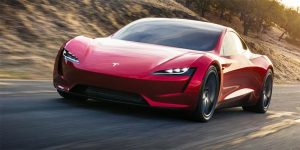Audi has opened a new research and development office in San Jose, California with the aim of designing advanced driver assistance systems (ADAS) specifically for the North American market. Audi sees the location of the office (A2D2) as the key to its success, with the ability to collaborate with startup companies located within Silicon Valley.
“Given the rapid advancement of driver assistance technologies in North America, it’s important to be part of the latest breakthroughs, work with leading edge of technology startups and attract the top talent,” said Frank Grosshauser, senior director, ADAS, Audi of America. “We’re looking to bring on as many as 60 engineers to develop new functionalities, catered specifically to North American Audi customer needs.”
A fleet of Audi Q7s are being used to test engineering advances.Photo courtesy of Audi AG
According to the automaker, the U.S. is expected to continue to lead the development of ADAS capabilities based on artificial intelligence. The cloud-supported process will push more advanced Level 2 and higher automated systems in the coming decade for use globally.
Level 2 driving automation is defined as enabling a vehicle to control both steering and acceleration/deceleration. It is not considered self-driving because a human sits in the driver’s seat and can take control of the vehicle at any time.
What makes A2D2 unique is its focus on developing hardware and software specifically for North American roads and driving behaviors.
A2D2’s first stage of activation included outfitting Audi Q7 development vehicles with roof-mounted sensor kits to collect data. Each was wrapped with a QR code that links to a webpage with information regarding the latest Audi automated driving breakthroughs and developments. Designers working in the Audi Design Loft in Malibu, California, created the unique graphics and logo specifically for A2D2.
The fleet of testing vehicles will be used for data acquisition to develop various cloud-based automated driver-assistance functions planned for introduction by 2023.








